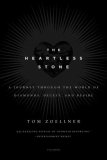Summary | Excerpt | Reviews | Beyond the Book | Readalikes | Genres & Themes | Author Bio

Critics' Opinion:
Readers' Opinion:
First Published:
May 2006, 288 pages
Paperback:
Jun 2007, 304 pages
 Book Reviewed by:
Book Reviewed by:
BookBrowse Review Team
Buy This Book
Children drunk on glue wander the filthy core of Bangui in
broken flip-flops, begging for francs. Their T-shirts from Western aid agencies
are often dotted with gummy clots; this is where they have smeared the glue to
huff through the cloth. Shoe polish is another favorite intoxicant—it is spread
on bread like jelly and eaten for a high. Still others take a stolen audiotape
and soak it in a jar of water for a week. The resulting home brew brings strange
hallucinations. Some of the street children will grab their crotches when they
approach new faces for coins. Trading sex for money is common here, despite a
national rate of AIDS infection estimated at one in every seven persons. "It’s
not always for money," a French schoolteacher told me. "Children need affection,
to be touched is instinctual, and this is the only way a lot of them can get
it."
The borders have been sealed to foreigners ever since the latest
in a long series of coups toppled the government in March 2003, so there is
really only one legitimate way in or out. That’s the once-weekly Air France
flight from Paris, which is inevitably crowded with a slice of the nation’s tiny
ruling class—the only ones who can afford the fare. The Sunday morning arrival
of Air France is a free-for-all in the northern part of the city of Bangui.
Hundreds of taxi hustlers and freelance luggage porters cram close to the
perimeter fence as they watch the passengers step from one world into another,
out of the air-conditioned cabin with its fois gras and Bordeaux and copies of
Paris Match and into the fecund obscurity.
In a waiting room nearby, with thick wire mesh and tattered
curtains covering the windows, are the departing passengers. They are protected
like dignitaries from the masses outside. I learned later that some of them were
almost certainly carrying a highly portable fortune in the folds of their
business suits and warm-up jackets. They were able to carry wealth that equaled
the annual wages of more than two thousand people. And without showing a bulge.
This is because the Central African Republic—corrupt, destitute,
and nearly forgotten by the rest of the world—has been one of the best places on
the continent to erase the history of a dirty diamond and smuggle it into the
legitimate market.
I came because I wanted to see how it was done.
History has never been happy here. There have been people living
in primitive agricultural settlements in this part of Africa at least five
centuries before Christ, but today, the region is one of the most depopulated on
the continent, a consequence of heavy slave-raiding activity in the seventeenth
century. Arab bands from the north captured entire tribes and sold them to slave
traders on the coast, and later on elevated blocks in Cairo. If any coherent
records existed, it is likely that many American blacks could trace their
ancestral lines to villages that disappeared centuries ago.
The French seized the region from an Egyptian sultan in the
1880s, named it Oubangui-Chari, and made it a department of a vast bloc of
colonial real estate called French Equatorial Africa. They also built a
plantation-style economy and set up the ramshackle capital of Bangui on a river
port, positioned to move ivory and cotton out to the Atlantic. Export companies
became the effective rulers of the colony. When André Gide visited the region in
1925, he called it "a country in ruins for the profit of a few." The adults were
forced to harvest wild rubber while their children were taught to speak French
and encouraged to forget their native language of Sango. The French also
introduced their cooking, and in some of the farthest villages, it is possible
to spend a few francs for a baguette, still gritty with black ash from the open
fire it has been baked over.
Copyright © 2006 by Tom Zoellner





The Funeral Cryer by Wenyan Lu
Debut novelist Wenyan Lu brings us this witty yet profound story about one woman's midlife reawakening in contemporary rural China.
Your guide toexceptional books
BookBrowse seeks out and recommends the best in contemporary fiction and nonfiction—books that not only engage and entertain but also deepen our understanding of ourselves and the world around us.